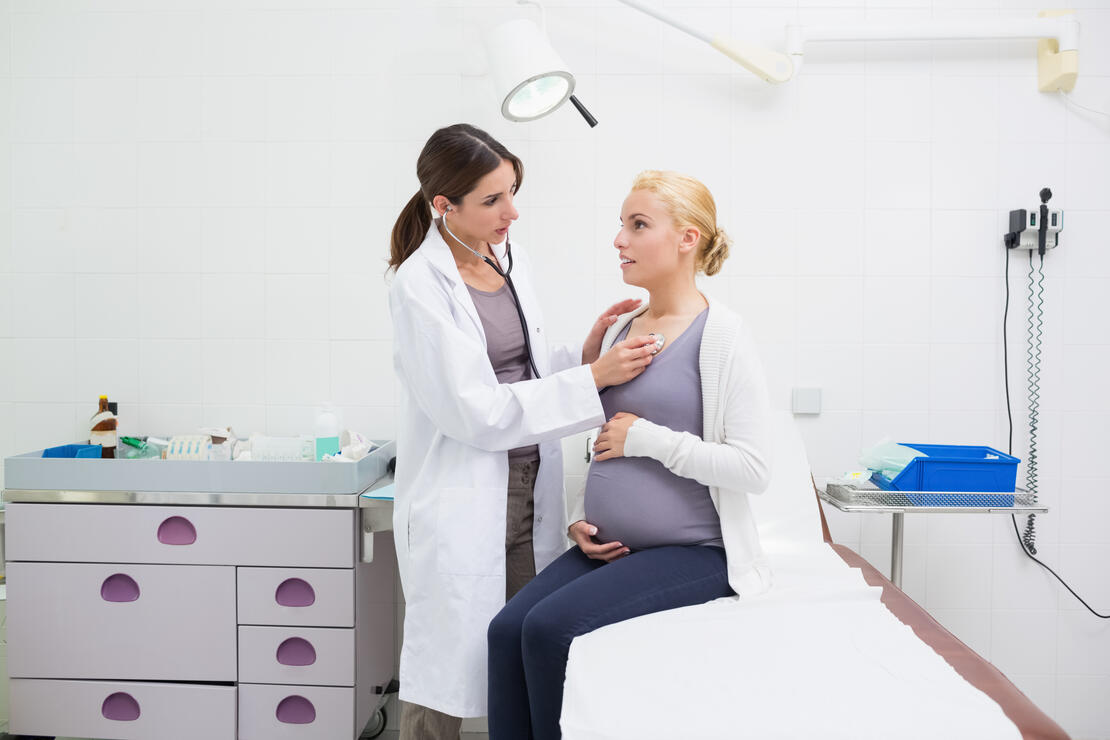Stats Reveal State of Pregnancy and Heart Health

Pregnancy has been termed a window into the future of a woman's cardiovascular health. That's why it figures prominently in the American Heart Association's annual statistical update. Compiled in conjunction with the National Institutes of Health, the update summarizes the latest, most significant data on heart disease, stroke and related conditions.
Pregnancy is "nature's stress test. And it's such an important time period for both mom and child," said Dr. Sadiya S. Khan, an assistant professor of medicine and preventive medicine at Northwestern University Feinberg School of Medicine in Chicago.
Khan said that in young women with no apparent signs of heart disease, pregnancy is a "unique and natural time" to unmask hidden risk for heart disease. "During pregnancy, your weight changes. Your blood pressure may change. Your glucose levels may change. And the combined cardiometabolic stress test of pregnancy can be really informative and guide interventions to reduce risk for heart disease."
Complications during pregnancy are widespread, becoming more common and often overlooked as warning signs about a woman's heart health.
Conditions that can occur during pregnancy include preeclampsia (a pregnancy-related condition defined by high blood pressure and organ damage), gestational diabetes (diabetes during pregnancy) and gestational hypertension (high blood pressure during pregnancy).
Among the related statistics in the 2022 update:
- Preeclampsia was associated with a 75% higher risk of later death from cardiovascular disease.
- The frequency of gestational diabetes has risen to 6%, affecting 5 out of 100 women.
- Gestational hypertension was associated with a 67% higher risk of later CVD.
Paying attention to such issues could make a difference in the health of huge numbers of women, said Dr. Salim Virani, a professor of cardiology and cardiovascular research at Baylor College of Medicine in Houston.
In practical terms, pregnancy offers a chance to reach women while they are sure to be in contact with a clinician, he said. For clinicians, it's an opportunity to expound on a woman's risk for future problems and "why it is important for you to take care of yourself with good lifestyle going forward."
"One of the most critical times for moms is the few weeks following delivery," says Dr. Lauren Arditti, who practices obstetrics and gynecology for Texas Health Resources in Fort Worth. "That's when a lot of the cardiovascular issues can really show their true colors, because that's when the body's starting to recalibrate and go back to the way it was prior to becoming pregnant.
"It's not just the six weeks after the birth; it's really the next three or six months, up to a year, that we really need to watch them, Arditti says."
Arditti's advice for anyone thinking about becoming pregnant is to make lifestyle changes to improve your heart health before you try to conceive.
"That's something that I love, when patients come in to see me before they even get pregnant," she says. "I think that's such a great time to start talking about optimizing your health - specifically for heart health - and all the things they can do to make sure that the pregnancy goes as smoothly as possible and they have a happy, healthy baby."
She stresses that women hoping to become pregnant should start by focusing on controllable risk factors, such as diet and exercise. It's important to continue those good habits during pregnancy, rather than backsliding.